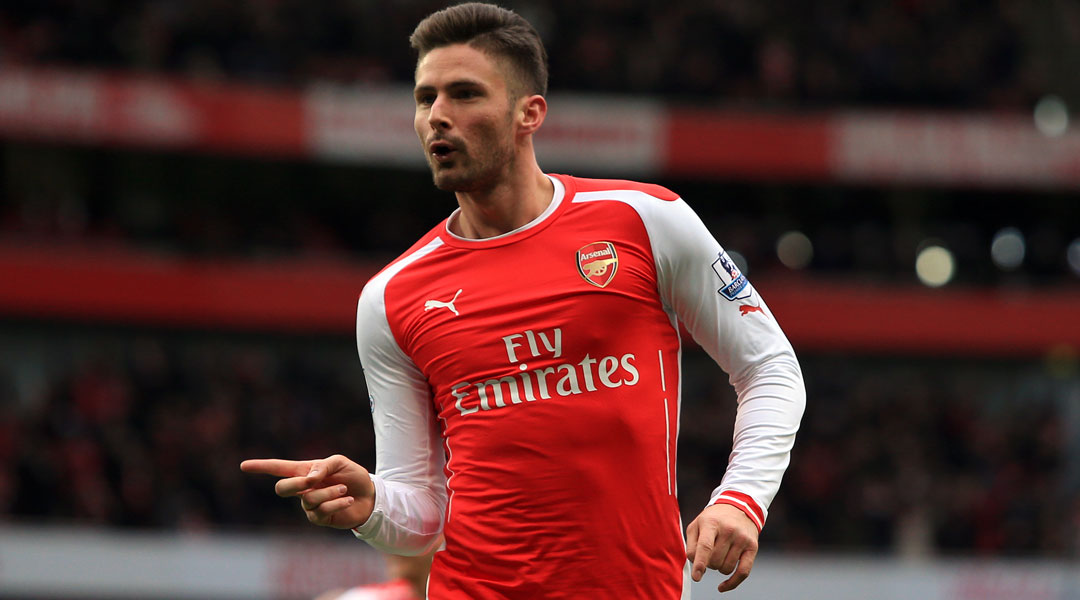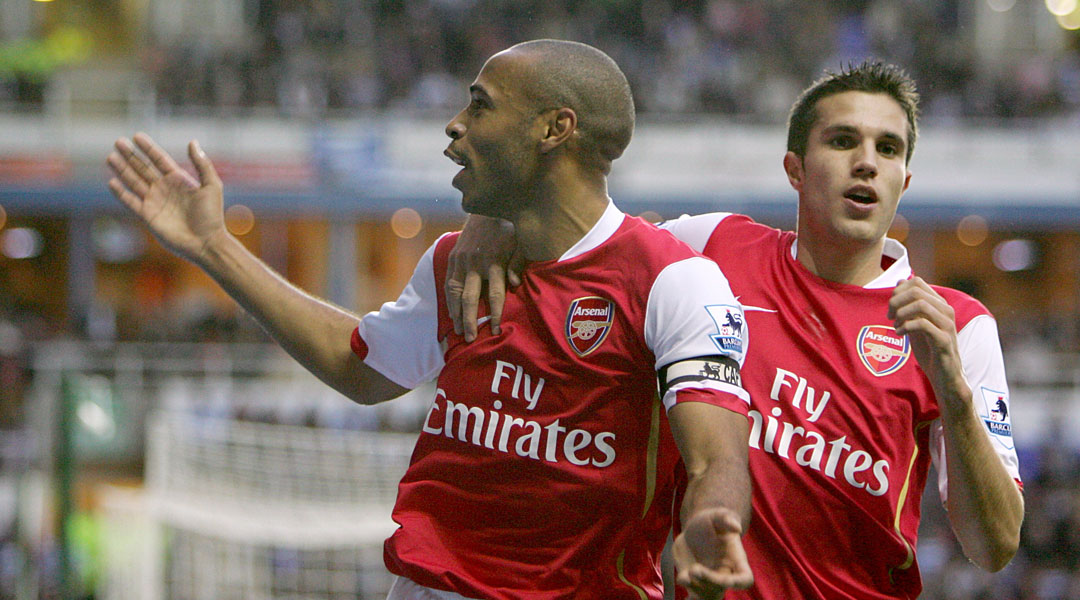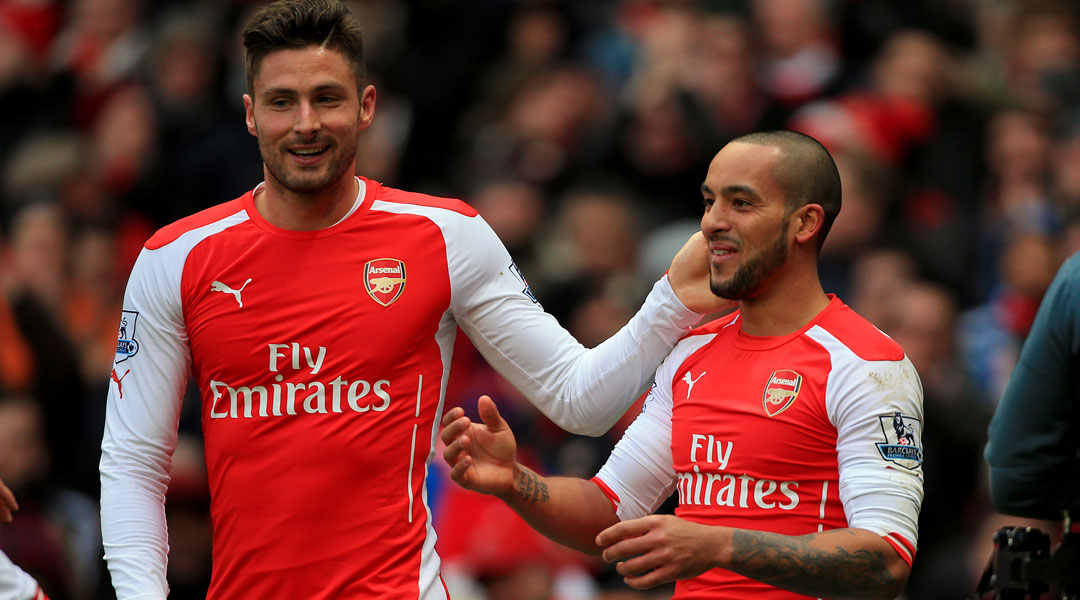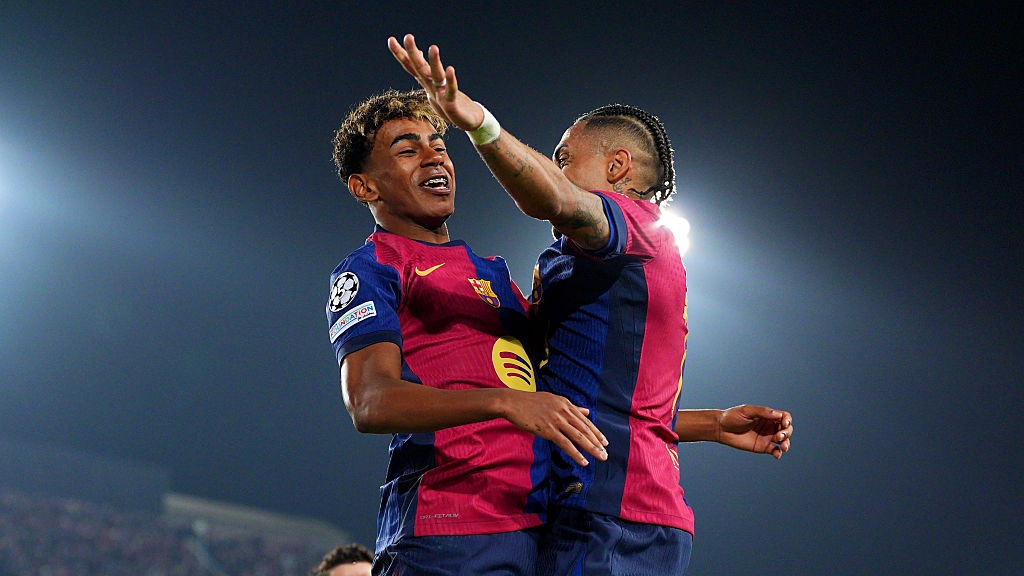Giroud's exponential improvements hint at a Wenger renaissance
Chas Newkey-Burden suggests why the Gunners boss is rediscovering his eye for home improvements where the former Montpellier man is concerned...

Trophies were not the only things that vanished from the Arsenal scene between 2005 and 2014. During those barren nine years, one of Arsene Wenger’s trademark tricks also disappeared. That talent, which had powered the club to seven trophies between 1998 and 2005, was his unerring ability to radically improve his players.
Gunners fans first saw this magic at work with Ray Parlour. For years, the curly-locked Essex man had veered between the tolerable and the satisfactory, every inch the George Graham midfield model. But under Wenger’s guidance, he became an astute maestro, winning player of the season in 1998/99 and rifling home from 25 yards to help win the 2002 FA Cup Final.
Old dogs, new tricks
The manager’s spell on Parlour was no one-off. He transformed countless other careers. Emmanuel Petit, Freddie Ljungberg, Thierry Henry, and Robin van Persie were among those who blossomed under his professorial gaze, becoming twice the players they had previously been.
Neither were old dogs immune to the manager’s spell. Tony Adams, Nigel Winterburn and Lee Dixon each had one foot in the professional grave when Wenger arrived in 1996. Yet he not only prolonged their careers into the 21st century, but turned these dependable-but-dour guard dogs into greyhounds of some grace.

Sometimes he would remodel a player by moving them to a significantly different position (Henry, Petit, Ljungberg and others). On other occasions he simply encouraged them to reconsider their existing terrain (Parlour, Gilberto, Adams). Young continental signings or ageing English stalwarts – it scarcely mattered what type of player Wenger took on, he always seemed to make them much better.
But then, around the time the club moved stadium and forgot how to win trophies, Wenger seemed to lose his ability to enhance his charges. During the nine-year trophy famine, he instead began to take some players in the other direction, with the likes of Jose Antonio Reyes, Andrey Arshavin, Jack Wilshere and, arguably, Wojciech Szczesny stagnating and declining before our very eyes.
Get FourFourTwo Newsletter
The best features, fun and footballing quizzes, straight to your inbox every week.
There were no notable improvements. Aaron Ramsey and Laurent Koscielny came close but neither excelled consistently enough. (And Wenger cannot be said to have improved the wondrous Fabregas in this sense, as he was the Spaniard’s first senior coach.)
Giroud awakening
Olivier Giroud is now showing that perhaps Wenger hasn’t lost his knack. In 2012/13, his first year in north London, the striker offered powerful athleticism and glamour aplenty but did little to suggest he could be the main man up front, or that he could become spoken of in the same paragraph, let alone the same breath, as Wright, Henry or Van Persie. His first touch, pace and footballing brain looked average. He never troubled top sides and he scored just 11 league goals. He was usually adequate but never awesome.
Yet in his second season, fans began to see a new Giroud. He led the line throughout the campaign as the Gunners won the FA Cup and spent longer at the top of the Premier League table than any club. Upping his seasonal goals tally from 17 to 22, he rocked a Bergkamp-esque touch against West Ham, effortlessly killing a long-range pass with his left foot before slotting home cooly.
The striker also showed a newfound ability to enhance the form of team-mates, dovetailing deliciously with the likes of Ramsey, including for the Welshman’s FA Cup-winning goal. Giroud’s game was improving on every level and he was helping get the club back among the trophies.
This term he has continued to better himself. The Frenchman has begun to terrorise the big clubs as well as the minnows, netting twice against champions Manchester City, including a blistering 25-yarder in his man-of-the-match performance in the Community Shield. He had previously never scored against Manchester City, Manchester United or Chelsea. He has contributed yet more telling passes and assists, including a peach for Ozil against Aston Villa at the weekend.
Giroud’s growing importance was also felt during his layoff with a tibia injury. In his absence the Gunners lost their way. They sank to eighth in the table as they endured their worst start to a campaign for 32 years.

Was it just by chance that, after Giroud’s return, which he marked with a cracker of a goal against Manchester United, the club began to win again? Wenger thinks not. “It’s no coincidence that when he comes back, you feel strong,” he said on Monday.
The manager also said of the forward, who has scored five goals in the last six games: “He’s much more focused; technically he has improved, his feet have improved, his movement has improved and he has a big presence in the game.” Other players are showing hints of a similar scale of improvement, not least Santi Cazorla.
If we pull to a wider shot, we see that Arsenal are on a fine run, having won 12 out of their last 15 outings, that there is a cup in the trophy room, that players are once more beginning to soar. It would be easy to get carried away but... well, it’s all feeling a little bit like the manager’s golden age again. Is Giroud signalling a Wenger renaissance?
